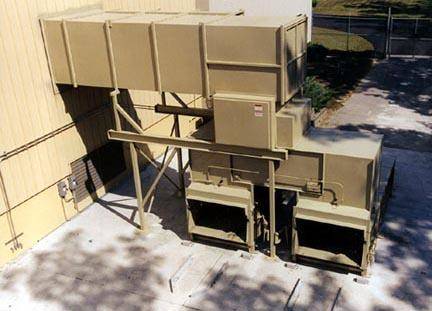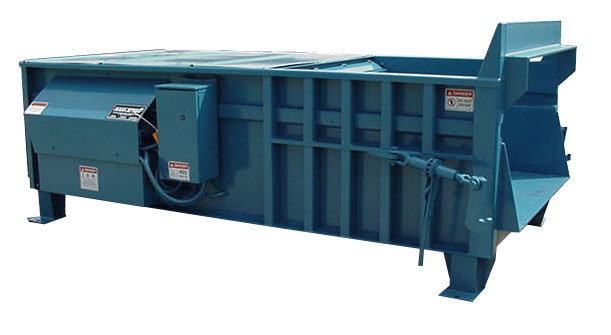The Duty of Waste Equipment in Encouraging Sustainable Waste Disposal Practices
Waste Equipment offers an essential function in progressing sustainable waste disposal techniques. It includes a range of devices designed to boost the effectiveness of waste partition, collection, and handling. By utilizing Equipment such as compactors, shredders, and reusing bins, communities can substantially reduce their dependence on landfills. However, the effect of these devices prolongs past performance. Comprehending their more comprehensive ramifications discloses insights right into just how they shape environmental responsibility and area engagement. What exists in advance in this advancing landscape?
Understanding Waste Equipment and Its Value
Waste Equipment plays a vital duty in efficient waste monitoring systems. It encompasses a variety of devices and machinery created to handle, procedure, and deal with waste products efficiently. Comprehending waste Equipment is necessary for organizations, towns, and organizations intending to execute lasting garbage disposal techniques - Commercial garbage compaction equipment. Effectively functioning waste Equipment not only improves the collection and transportation of waste but additionally minimizes ecological effect by ensuring that waste is managed responsibly
The importance of waste Equipment reaches boosting reusing initiatives, minimizing land fill use, and advertising resource recovery. Equipment such as balers, compactors, and shredders facilitate the processing of waste, making it simpler to separate recyclable products from basic refuse. Furthermore, developments in waste technology add to the growth of even more environmentally friendly solutions, therefore enhancing the dedication to sustainability. In general, waste Equipment functions as a cornerstone for effective waste administration, promoting a cleaner and healthier environment for future generations.
Kinds of Waste Equipment for Effective Waste Monitoring
Reliable waste monitoring depends on different kinds of Equipment developed to attend to certain disposal needs. Amongst these, compactors play a vital role by lowering the volume of waste, making transportation more reliable. Shredders are vital for damaging down big products, facilitating less complicated handling and disposal. Furthermore, balers press recyclable products right into manageable bales, enhancing storage and transportation.
Containers and bins are essential for gathering waste at the source, assuring correct partition and minimizing contamination. For unsafe materials, customized Equipment, such as drum crushers and leak-proof containers, is necessary to ensure safety and compliance with laws.
Lastly, transportation lorries geared up with hydraulic systems improve the efficiency of waste collection and disposal procedures. Each type of waste Equipment adds to a structured waste management system, promoting sustainability and lowering ecological impact with reliable disposal techniques.
The Role of Reusing Bins in Lasting Practices
Recycling containers play a crucial role in advertising sustainable techniques by helping with efficient waste separation. By offering assigned containers for recyclable products, they encourage individuals to embrace eco-friendly behaviors. This easy implementation substantially adds to reducing garbage dump waste and boosting recycling prices.
Reliable Waste Splitting Up
Proper waste splitting up plays a critical duty in promoting sustainable practices, and recycling bins function as a considerable tool in this procedure. By plainly identifying in between recyclables, compostables, and basic waste, these bins help with effective sorting, minimizing contamination and maximizing reusing effectiveness. Their strategic placement in personal and public spaces encourages people to take part in accountable waste disposal. The use of color-coded containers helps to streamline the separation process, making it instinctive for individuals. This organizational strategy not just enhances reusing rates yet likewise raises recognition regarding the significance of waste management. Basically, recycling bins are fundamental parts that support effective waste separation, inevitably contributing to an extra sustainable atmosphere and minimizing the overall pressure on landfills.
Urging Eco-Friendly Behavior
Although people may be inclined to forget their influence on the environment, the visibility of recycling containers significantly influences environmentally friendly actions. These bins serve as visual suggestions, motivating people to different recyclables from general waste. Their calculated placement in public spaces advertises availability, making it easier for people to embrace sustainable techniques. Research studies show that when recycling containers are available, reusing prices raise considerably, reflecting a straight relationship in between facilities and behavior. In addition, vibrant signage on these bins informs users concerning what materials can be reused, minimizing contamination rates. By promoting a society of recycling, these bins not only promote proper waste administration but additionally motivate a collective obligation towards ecological stewardship, eventually adding to an extra lasting future.
Composting Solutions: Transforming Waste Into Resources
Composting systems serve as a crucial tool in transforming organic waste right into useful sources, offering numerous ecological benefits. Various sorts of composting Equipment satisfy various demands, making the procedure accessible to both people and neighborhoods. Recognizing the composting procedure is essential for optimizing its performance and advertising lasting waste monitoring methods.
Benefits of Composting Systems
Several communities are significantly acknowledging the countless advantages of composting systems, which transform organic waste into useful sources. These systems successfully minimize landfill waste, consequently reducing greenhouse gas exhausts and preserving natural deposits. By transforming food scraps, yard waste, and various other natural materials right into nutrient-rich compost, they improve soil health and fertility, promoting lasting farming techniques. In addition, composting aids to maintain moisture in the dirt, lowering the need for chemical plant foods and watering. It fosters biodiversity by giving a habitat for beneficial microbes and insects. Furthermore, composting educates individuals regarding ecological stewardship, encouraging a society of sustainability. On the whole, composting systems play an essential function in producing a round economic climate, where waste is reduced, and sources are reused.
Kinds Of Composting Equipment
A selection of composting Equipment is available to assist in the reliable handling of organic waste into important compost. These systems range from straightforward backyard garden compost bins to Read More Here innovative industrial composters. For home usage, stemless glass and static bins are prominent, allowing for convenient aeration and blending. Aerated static piles use blowers to boost airflow, greatly accelerating disintegration. Massive procedures may utilize in-vessel composters, which regulate temperature level and moisture for perfect composting problems. Worm composters, or vermicomposting systems, harness the natural gastrointestinal processes of worms to break down raw material. In addition, shredders and chippers assist prepare products by reducing dimension, promoting faster break down. Each sort of Equipment serves particular demands, allowing varied composting techniques that add to lasting waste monitoring.
Composting Process Explained
The composting procedure changes natural waste into nutrient-rich resources with a collection of organic and chemical reactions. Initially, microorganisms such as bacteria and fungi break down organic materials, including food scraps and yard waste. This disintegration creates warm, assisting in additional microbial activity and increasing the malfunction process. As the compost develops, the temperature decreases, permitting helpful microorganisms to prosper. The presence of oxygen is vital, advertising cardiovascular problems that enhance microbial effectiveness. Throughout this procedure, carbon-to-nitrogen proportions should be maintained to maximize decomposition. Completion outcome is humus, a dark, crumbly material abundant in nutrients, which can be used to enrich soil, support plant development, and add to sustainable farming methods.
Innovative Technologies in Waste Collection and Disposal
As cities face enhancing waste quantities and environmental worries, innovative modern technologies in waste collection and disposal arise as necessary solutions. Smart waste containers equipped with sensing units track fill degrees, enhancing collection courses and decreasing gas usage. These containers can likewise communicate with waste administration systems, assisting in timely pick-ups and decreasing overflow issues. Furthermore, autonomous cars, consisting of drones and robotic systems, are being deployed to improve functional efficiency in waste collection.
Improvements in sorting modern technologies, such as artificial intelligence and maker understanding, enable extra effective recycling procedures by rapidly recognizing and separating materials. Furthermore, waste-to-energy innovations transform organic waste into renewable resource, decreasing land fill dependence and contributing to power sustainability. These developments not only improve waste administration methods but likewise promote a round economy, thereby fostering a sustainable approach to waste disposal. Inevitably, the assimilation of these technologies plays a pivotal duty in attending to metropolitan waste challenges and enhancing environmental stewardship.
Neighborhood Involvement With Waste Equipment
While reliable waste administration relies heavily on innovative modern technologies, neighborhood engagement through waste Equipment plays an important role in cultivating lasting methods (Commercial garbage compaction equipment). Waste Equipment, such as recycling bins and composting terminals, offers not just as functional devices however also as catalysts for area understanding and participation. By positioning these resources in available areas, communities encourage people to take an active role in waste decrease and reusing efforts
Educational projects coming with waste Equipment installations can further boost area involvement, guiding homeowners on correct disposal approaches and the benefits of lasting methods. In addition, neighborhood occasions that use waste Equipment, such as clean-up drives and recycling obstacles, influence cumulative action and construct a sense of obligation amongst community participants.

The Future of Waste Management and Lasting Solutions
Technologies in modern technology and changes in societal attitudes are forming the future of waste administration and lasting options. Smart waste management systems, utilizing IoT devices, are making it possible for real-time surveillance of waste levels, optimizing collection courses, and decreasing carbon footprints. These innovations not only enhance effectiveness yet likewise advertise recycling and composting initiatives by offering data-driven insights.
In addition, the increase of round economic situation methods encourages firms to reassess item style, concentrating on reusability and recyclability. This shift cultivates a culture of sustainability, where customers are increasingly demanding environment-friendly products.
Area participation in waste management is ending up being significantly important, with academic programs equipping people to take responsibility for their waste. As federal governments worldwide implement stricter guidelines on waste disposal, communities and companies are motivated to adopt sustainable practices. With each other, these elements lead the method for a future where waste is decreased, and sources are preserved, ensuring a healthier earth.
Frequently Asked Questions

Exactly How Can Businesses Profit Financially From Spending in Waste Equipment?
Buying waste Equipment can result in substantial monetary advantages for businesses. By boosting efficiency, lowering disposal expenses, and boosting recycling capacities, companies can reduce operational expenditures and potentially generate profits via recuperated products.
What Regulations Regulate the Use of Waste Equipment in Various Regions?
Different regulations regulate waste Equipment usage, varying by region. These check my blog consist of ecological standards, security methods, and operational guidelines, targeted at ensuring compliance, advertising public health, and reducing ecological influence connected with waste administration techniques.
How Do I Select the Right Waste Equipment for My Demands?
Choosing the ideal waste Equipment necessitates examining specific waste kinds, quantity, and disposal approaches. Researching readily available choices, seeking advice from professionals, and taking into consideration regulatory compliance will certainly help in making a notified choice customized to private needs.
What Are the Ecological Effects of Ineffective Waste Equipment?
Ineffective waste Equipment can lead to enhanced exhausts, greater power usage, and better landfill overflow. It commonly causes improper waste segregation, exacerbating pollution and negatively impacting communities, which eventually hinders sustainable waste administration efforts.
Exactly How Can Waste Equipment Be Maintained for Optimal Performance?
Waste Equipment can be maintained for peak efficiency with routine inspections, prompt repairs, correct cleaning, and adherence to producer standards. This guarantees efficiency, extends Equipment life-span, and lessens environmental helpful resources impact throughout waste monitoring processes.
Waste Equipment plays a necessary function in effective waste monitoring systems. Recognizing waste Equipment is vital for companies, businesses, and communities aiming to carry out sustainable waste disposal practices. While reliable waste monitoring depends heavily on innovative modern technologies, area interaction with waste Equipment plays a vital role in promoting lasting practices. Area involvement in waste administration is becoming increasingly necessary, with educational programs empowering people to take obligation for their waste. Picking the suitable waste Equipment requires evaluating particular waste kinds, quantity, and disposal methods.